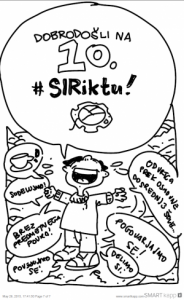Goran Bezjak, Zavod RS za šolstvo OE Nova Gorica, Nova Gorica
School environment is not the only place to acquire knowledge. Some processes or phenomena can be understood only when people are actively engaged in them. As a teacher I realised that students develop deeper understanding when they prepare and conduct experiments by themselves. An appropriate environment to develop science concepts is a home workshop. All my secondary school students were required to produce one handmade product per academic year (e.g. a kitchen scale). They often needed help from their (grand)parents or peers. Particularly grandfathers or fathers invited students to their workshops and helped them make products and understand concepts behind the products, necessary for understanding science. How do I expect my students to work? Alone, studying from books, or work in a team and develop knowledge from many different resources? Thus learning physics takes place not only at school, but also in the students’ home environment. Therefore, the teacher’s role has changed to a moderator of the learning process. Teachers provides criteria for the product. However, all stages of the planning, practical work and product testing need to be done by students. Finally, students presenting their own products in a classroom, explain physics concepts and solve tasks provided by the teacher. Students’ presentations are based on their observation, experimenting and learning from mistakes. The teacher evaluates students’ understanding of the concepts, mathematical skills, related the product and experimental skills. However, the design was not evaluated, as an important aim was understanding physics, not the product itself. In this, parents supported the students and took over the role of a teacher, if they needed help. For this type of learning we use project-based and cooperative learning. It encourages creativity and experimental/practical skills. One of the benefits is individualisation as every student can find their own way and take as much time as they need to make the product. And every product is a unique. Teachers give their students opportunities to make one product every academic year and thus continuously develop different types of skills.
